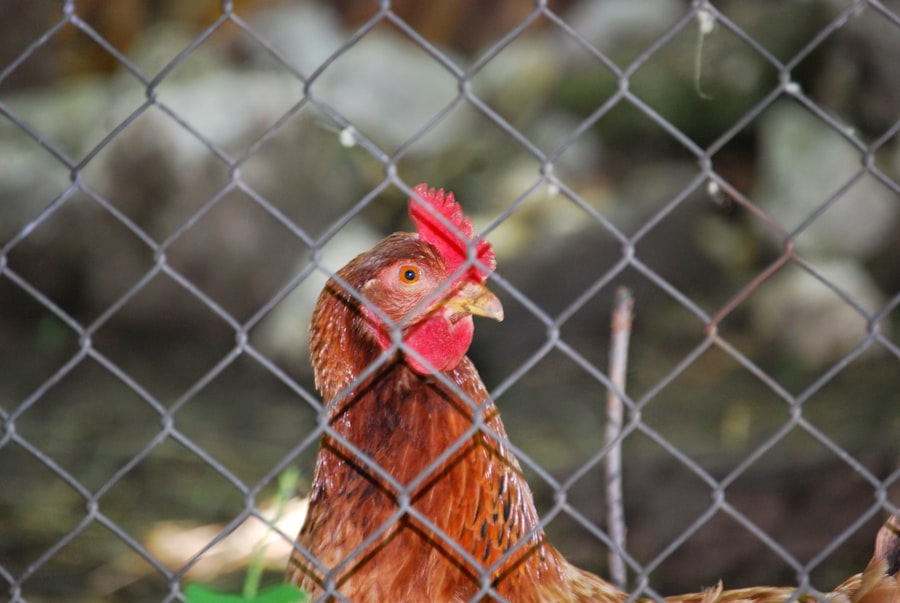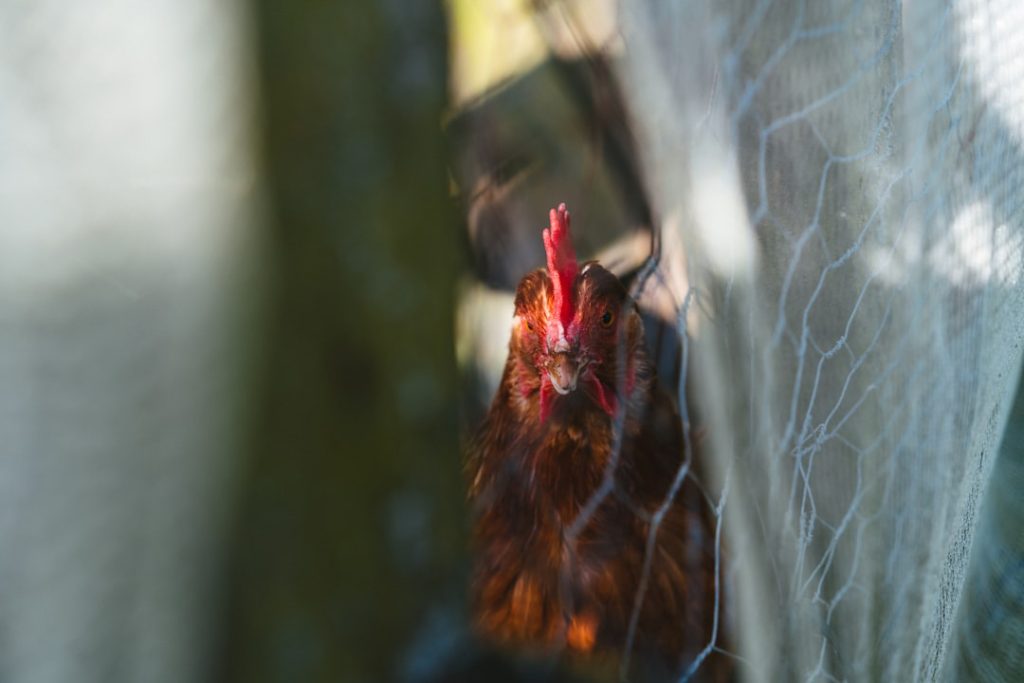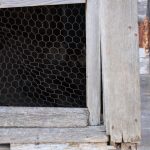Chickens are naturally curious and foraging animals with a strong instinct to peck and scratch the ground in search of food. This behavior is crucial for their survival in the wild, enabling them to find insects, seeds, and other edible items. However, in a garden setting, this natural behavior can become problematic, potentially leading to damage or consumption of plants.
Understanding chicken behavior is essential for developing effective strategies to keep them away from plants. Chickens are social animals that thrive in flocks and have a well-defined pecking order, with dominant individuals asserting authority over others. This social structure can influence their behavior in the garden, as dominant chickens may be more likely to explore and forage in restricted areas.
Chickens are also attracted to bright colors, which may draw them to colorful flowers or fruits in the garden. Recognizing these behavioral traits is crucial for gardeners to develop effective strategies for keeping chickens away from plants without causing undue stress or harm.
Table of Contents
- 1 Creating a Barrier between Chickens and Plants
- 2 Providing Alternative Sources of Food for Chickens
- 3 Using Natural Deterrents to Keep Chickens Away from Plants
- 4 Training Chickens to Avoid Eating Plants
- 5 Regularly Monitoring and Maintaining the Garden
- 6 Seeking Professional Help if Necessary
- 7 FAQs
Key Takeaways
- Chickens are naturally curious and will peck at plants in the garden.
- Creating a physical barrier, such as a fence, can help keep chickens away from plants.
- Providing alternative sources of food, such as a designated feeding area, can distract chickens from eating plants.
- Natural deterrents like citrus peels or cayenne pepper can be used to keep chickens away from plants.
- Training chickens with positive reinforcement can help them learn to avoid eating plants.
- Regularly monitoring the garden and maintaining the barrier can prevent chickens from accessing plants.
- Seek professional help, such as a veterinarian or animal behaviorist, if issues with chickens eating plants persist.
Creating a Barrier between Chickens and Plants
Creating a Physical Barrier
One effective way to keep chickens away from plants is to create a physical barrier between the two. This can be achieved by using fencing, netting, or other materials to enclose the garden area and prevent chickens from gaining access. The barrier should be tall enough to prevent chickens from flying or jumping over it, and sturdy enough to withstand their attempts to scratch or peck at it.
Burying the Barrier
Additionally, the barrier should be buried into the ground to prevent chickens from digging underneath it. By creating a physical barrier, gardeners can effectively protect their plants from the foraging behavior of chickens while still allowing the chickens to roam freely in other areas of the yard.
Raised Garden Beds as a Solution
Another option for creating a barrier between chickens and plants is to use raised garden beds. By elevating the plants off the ground, gardeners can prevent chickens from accessing them while still allowing them to forage in other areas of the garden. Raised garden beds can be constructed using wood, stone, or other materials, and can be designed to fit the specific needs of the garden. Additionally, using chicken wire or other mesh material to cover the raised beds can provide an extra layer of protection against chicken foraging.
Effective Protection for Your Garden
By creating a physical barrier between chickens and plants, gardeners can effectively protect their garden while still allowing their chickens to roam and forage in a controlled environment.
Providing Alternative Sources of Food for Chickens

One effective way to keep chickens away from plants is to provide them with alternative sources of food. By ensuring that chickens have access to a balanced and nutritious diet, gardeners can reduce their reliance on foraging for food in the garden. This can be achieved by providing chickens with a regular supply of commercial feed, as well as access to fresh water and supplemental treats such as fruits, vegetables, and mealworms.
By meeting the nutritional needs of their chickens, gardeners can reduce their motivation to seek out food in the garden and minimize the risk of damage to plants. Another option for providing alternative sources of food for chickens is to create designated foraging areas within the yard. By designating specific areas where chickens are encouraged to forage, gardeners can control their access to plants and minimize the risk of damage.
This can be achieved by scattering scratch grains or other treats in these designated areas to encourage chickens to forage there instead of in the garden. Additionally, providing chickens with access to a diverse range of forage materials such as grass, clover, and insects can help satisfy their natural foraging instincts and reduce their reliance on plants as a food source. By providing alternative sources of food for chickens, gardeners can effectively minimize their impact on the garden while still allowing them to exhibit natural behaviors.
Using Natural Deterrents to Keep Chickens Away from Plants
In addition to providing alternative sources of food, gardeners can use natural deterrents to keep chickens away from plants. One effective deterrent is the use of strong-smelling herbs and plants that are unappealing to chickens. For example, planting aromatic herbs such as lavender, rosemary, or mint around the perimeter of the garden can help deter chickens from entering and foraging in the area.
Additionally, using natural repellents such as garlic or hot pepper spray on plants can make them less attractive to chickens and discourage them from consuming them. Another natural deterrent that can be used to keep chickens away from plants is the presence of predator animals or decoys. Chickens are naturally wary of predators such as hawks, owls, and foxes, and may avoid areas where they perceive a threat.
By strategically placing decoys or using recordings of predator calls, gardeners can create the illusion of a predator presence and deter chickens from entering the garden. Additionally, allowing natural predators such as cats or dogs to patrol the area can help keep chickens away from plants without causing them harm.
Training Chickens to Avoid Eating Plants
Another effective strategy for keeping chickens away from plants is to train them to avoid consuming them. This can be achieved through positive reinforcement training, where chickens are rewarded for exhibiting desired behaviors such as staying away from certain areas of the garden. For example, by using treats or praise to reward chickens for staying within designated foraging areas and avoiding plants, gardeners can encourage them to exhibit more desirable behaviors.
Additionally, using aversive conditioning techniques such as loud noises or sudden movements can help deter chickens from approaching plants. For example, using a motion-activated sprinkler system or clapping hands loudly when chickens approach plants can create a negative association that discourages them from repeating the behavior. By consistently reinforcing these training techniques, gardeners can effectively teach their chickens to avoid consuming plants and minimize damage to the garden.
Regularly Monitoring and Maintaining the Garden

Regular monitoring and maintenance of the garden are essential for keeping chickens away from plants. By regularly inspecting the garden for signs of chicken damage and addressing any issues promptly, gardeners can prevent further damage and minimize the impact on plant growth. This can involve repairing any damage to fencing or barriers, removing any fallen fruits or vegetables that may attract chickens, and replenishing alternative sources of food for the chickens.
Additionally, maintaining a clean and tidy garden can help reduce the likelihood of attracting chickens. By removing any debris or clutter that may provide hiding spots or attract insects, gardeners can create a less appealing environment for chickens to forage in. Regular weeding and pruning can also help keep plants healthy and reduce the likelihood of attracting chicken attention.
Seeking Professional Help if Necessary
If all else fails, it may be necessary to seek professional help in keeping chickens away from plants. This can involve consulting with a poultry expert or animal behaviorist who can provide guidance on effective strategies for managing chicken behavior in a garden setting. Additionally, seeking assistance from a professional landscaper or gardener can help identify specific areas of vulnerability in the garden and develop tailored solutions for keeping chickens away from plants.
In some cases, it may be necessary to consider more drastic measures such as relocating the chicken coop or implementing more extensive fencing or barriers. A professional can provide valuable insight into these options and help determine the most appropriate course of action based on the specific needs of the garden and the behavior of the chickens. In conclusion, keeping chickens away from plants in a garden setting requires an understanding of chicken behavior and effective strategies for managing their impact.
By creating barriers between chickens and plants, providing alternative sources of food, using natural deterrents, training chickens, regularly monitoring and maintaining the garden, and seeking professional help if necessary, gardeners can effectively protect their plants while still allowing their chickens to roam and forage in a controlled environment. With careful planning and consistent implementation of these strategies, it is possible to create a harmonious coexistence between chickens and plants in a garden setting.
If you’re looking for more information on keeping chickens, you might be interested in this article on turning a shed into a chicken coop. It offers helpful tips on creating a suitable living space for your chickens, which can also help prevent them from eating your plants.
FAQs
What plants do chickens like to eat?
Chickens are known to enjoy eating a variety of plants, including vegetables, fruits, flowers, and even some types of grasses and weeds.
How can I keep chickens from eating my plants?
There are several methods to prevent chickens from eating your plants, including using physical barriers such as fences or netting, providing alternative sources of food and entertainment for the chickens, and using natural deterrents such as spicy or bitter sprays on the plants.
What are some chicken-friendly plants that I can grow?
Some plants that chickens tend to avoid or are safe for them to eat include herbs like mint, oregano, and thyme, as well as certain types of grasses and grains such as wheat and barley.
Are there any plants that are toxic to chickens?
Yes, there are several plants that are toxic to chickens and should be avoided in areas where they roam. Some examples include azaleas, rhododendrons, nightshade, and daffodils.
Can I train my chickens to avoid eating certain plants?
Chickens can be trained to some extent to avoid certain plants, but it may require consistent reinforcement and patience. Providing alternative sources of food and regularly monitoring their behavior around the plants can help in training them.
Meet Walter, the feathered-friend fanatic of Florida! Nestled in the sunshine state, Walter struts through life with his feathered companions, clucking his way to happiness. With a coop that’s fancier than a five-star hotel, he’s the Don Juan of the chicken world. When he’s not teaching his hens to do the cha-cha, you’ll find him in a heated debate with his prized rooster, Sir Clucks-a-Lot. Walter’s poultry passion is no yolk; he’s the sunny-side-up guy you never knew you needed in your flock of friends!







